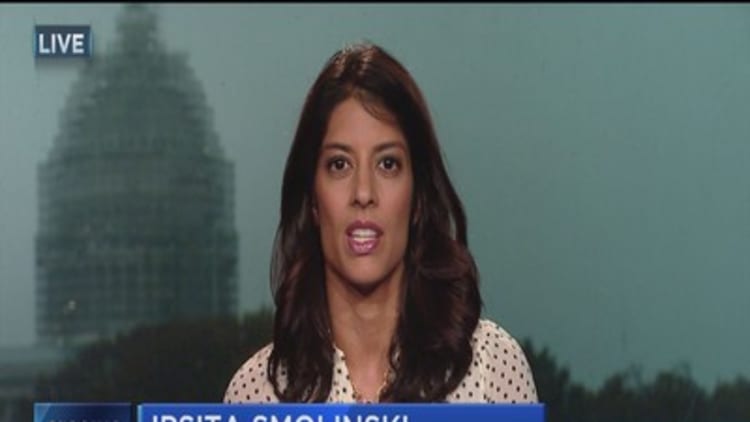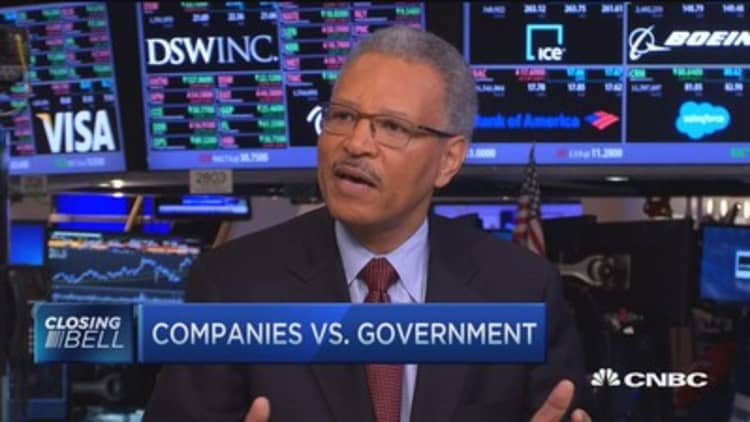
As UnitedHealth Group threatens to opt out of participating in Obamacare in 2017, one expert says no one should be surprised.
Insurers have actually lost about $2.5 billion through Obamacare exchanges in 2014, said Ipsita Smolinski, managing director and healthcare analyst at Capitol Street, speaking on CNBC's "Closing Bell" Thursday.
United Health currently offers plans in 24 states and covers half a million Americans, making it the largest health insurance company in the U.S. Despite the fact that public exchanges only account for a small percentage of the insurance giant business, Smolinski said, "a negative margin is never great."

Former Aetna CEO Ron Williams told CNBC's "Closing Bell" negative margins can be attributed to an imbalance in the customer mix.
"In the individual insurance market, maintaining affordability requires you have a mix of members in that insurance pool," Williams said. "Where we stand now, because of some of these special enrollment periods, is we have a mix imbalance; we have more people who need healthcare today and fewer who are making a decision to purchase the insurance before they need the healthcare."
Smolinski says the problem needs to be addressed by the Obama administration and the U.S. Department of Health and Human Services.
"I think it really is a wake-up call to HHS, to the White House to say, 'Look, these people are more sick, they're more expensive.' There are people coming onto the exchanges, maybe obtaining coverage for three, four months and dropping out," she said. She says the government should check those users out more thoroughly and assess penalties where needed.
Steve Halper, an analyst at FBR Capital Markets, said not only does the administration need to beef up screening efforts but also needs to work more actively with insurers.
"The industry, broadly defined, needs to engage with the government and decide how to provide the correct incentives for the insurance companies to participate in the exchanges," he told CNBC's "Power Lunch." "Because right now, the for-profit companies won't participate unless there's an adequate return. They can take their capital and deploy it elsewhere in order to drive earnings and return to shareholders."
Williams added that if insurers face regulatory pushback and are asked to price premiums at rates that are not financially supportable, they might discontinue participation in Obamacare.
However, Smolinski holds out hope for reconciliation. With the right response, she said the government could smooth things over with healthcare insurers.
"I think it is a partnership so I think if insurers feel like that other end of the bargain is being agreed to, then things will potentially work out," Smolinski said.





